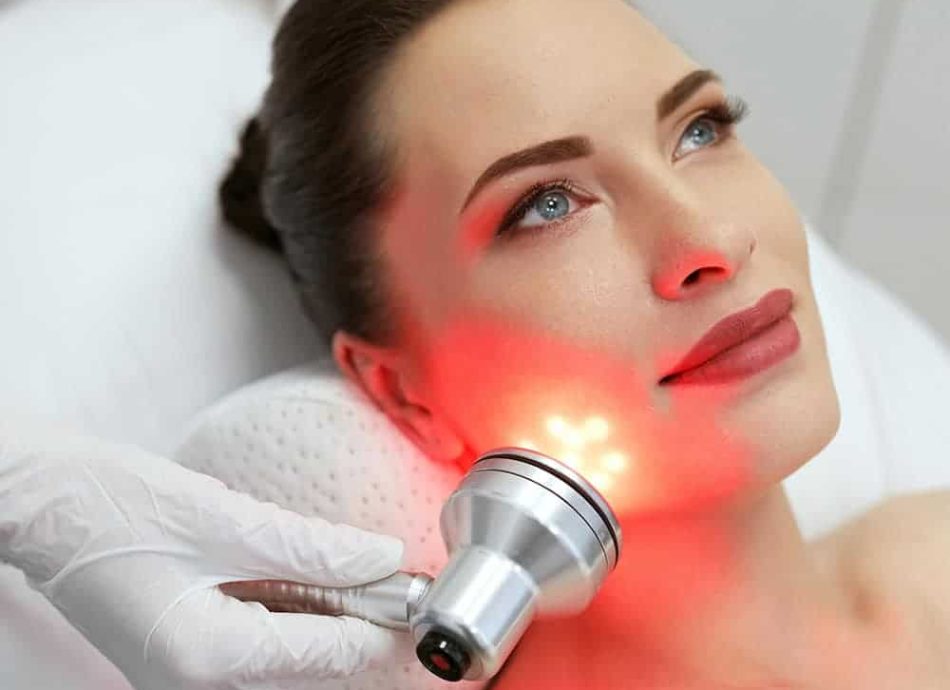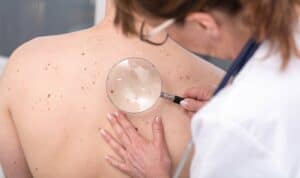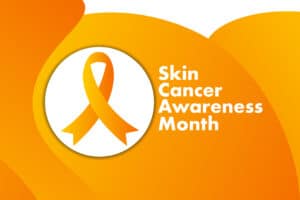Daylight Photo Dynamic Therapy
Home » Treatments » Daylight Photo Dynamic Therapy
Award winning dermatology service, with over 20 years of experience
Short waiting lists, on some occasions offering same week appointments
Safe environment, in Care Quality Commission approved facilities
Everything you need to know
Photodynamic Therapy (PTD) is a simple, non-invasive procedure that can be used to treat precancerous skin lesions. The treatment uses topical cream and light therapy to destroy cancerous and precancerous cells but doesn’t affect healthy tissue. Traditional photodynamic therapy uses artificial light as the light source, but this treatment can also take the form of daylight photodynamic therapy where natural sunlight is used.
This treatment is effective in treating non-melanoma skin cancers including Basal cell carcinoma (BCC) and Squamous cell carcinoma (SCC), as well as precancerous lesions such as Actinic Keratosis and Bowen’s disease.
HOW DOES PHOTODYNAMIC THERAPY WORK?
The treatment works by applying a topical cream, which is light sensitive, to the lesion and then using a light source, artificial or natural, to destroy any abnormal cells. On their own, both the cream and the light are harmless, but when exposed to light the cream causes a reaction that damages nearby cells.
During your procedure, sunscreen of an SPF of 30 or higher will be applied to the treatment area, which protects your skin. Your lesion is then prepared by cleaning the surrounding skin and removing any crusting. The topical cream will then be applied and will be left to fully absorb and build up in the abnormal cells. The light treatment will then begin which is either administered through a lamp or a laser for a short time, or you will be exposed to the daylight for a couple of hours.
The main side effect of the treatment is that you may experience mild tingling or pain in the treated area. This can be reduced by the use of a water spray to soothe any feelings of discomfort.
During your consultation at Stratum Dermatology Clinics, your consultant dermatologist will assess your condition and discuss the most appropriate treatment options for you.
FREQUENTLY ASKED QUESTIONS
WHAT IS THE DIFFERENCE BETWEEN PHOTODYNAMIC THERAPY AND DAYLIGHT PHOTODYNAMIC THERAPY?
The only difference between these two treatments is the light source that is used. In Photodynamic Therapy, an artificial light in the form of a lamp or a laser is used. In Daylight Photodynamic Therapy, the light source is natural daylight.
HOW LONG DOES IT TAKE TO RECOVER FROM PHOTODYNAMIC THERAPY?
Most people can carry on with normal activities 24-48 hours after treatment. The key thing is to avoid direct sunlight during this time as you may be more sensitive to light. You will gradually become less sensitive to light and things will return to normal.
DO I NEED TO PREPARE FOR PHOTODYNAMIC THERAPY?
It is recommended that you cover up on your way home from the treatment to avoid sunlight as much as possible. If the treatment is on your face, it is a good idea to bring a hat, scarf or sunglasses. If the treatment is on your body, wear clothes which will cover any exposed skin.
REQUEST A CALL BACK
Please fill in this form and one of our team will give you a call back to arrange a consultation with one of our expert dermatologists.

HEAR FROM OUR PATIENTS
WHY HAVE PHOTODYNAMIC THERAPY AT STRATUM DERMATOLOGY CLINICS?
If you are looking for a private skin cancer clinic, Stratum Dermatology Clinics have clinics nationwide offering mole checking, mole removal and skin cancer treatment. Here at Stratum Dermatology Clinics, we understand how skin conditions can negatively impact your life. We help hundreds of patients each month and our dermatology experts have a wealth of experience in the assessment, treatment and management of all types of skin cancers.
During your consultation at Stratum Dermatology Clinics, your condition will be assessed by an expert consultant dermatologist who will discuss the most appropriate treatment for you. If you would like your moles checked for peace of mind, are worried you may have skin cancer or would like to discuss treatment options available to you, book a consultation today.
We work with leading experts in the field of dermatology to ensure you have the best experience and treatment. Stratum Dermatology Clinics are regulated by the Care Quality Commission, are part of the British Association of Dermatologists and are top rated by patients on Doctify so you can assure safe and effective acne treatment with us. Both Stratum Dermatology Clinics and the consultants who work here are recognised by the main healthcare insurance providers.
INSIGHTS AND ADVICE

When Should I Worry About A Mole
WHEN SHOULD I WORRY ABOUT A MOLE? A mole is a coloured spot on the skin which is made up of a cluster of cells known as melanocytes which are responsible for producing the pigment in your skin. Sometimes these melanocytes grow in a cluster

What are the common types of skin cancer?
WHAT ARE THE COMMON TYPES OF SKIN CANCER? There are three main types of skin cancer, basal cell carcinoma (BCC), squamous cell carcinoma (SCC) and melanoma. The first two are both known as non-melanoma skin cancer and are the most common varieties. Non-melanoma skin cancer

Skin Cancer Awareness Month
SKIN CANCER AWARENESS MONTH. Skin cancer awareness month takes place every May with the aim of raising awareness of the dangers of unprotected sun exposure and educating on the ways skin cancer can be prevented. During skin cancer awareness month, the British Association of Dermatologists



